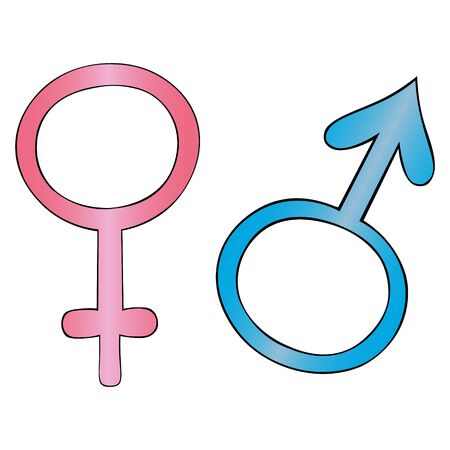Introduction to Indian Astrology and Its Relevance in Modern Relationships
India, a land where ancient wisdom seamlessly intertwines with everyday living, has long revered the science of astrology as a guiding force in human affairs. At the heart of this tradition is Vedic astrology, or Jyotish Shastra, which has illuminated the path of countless souls seeking harmony and understanding in their relationships. Unlike Western perspectives, Indian astrology delves deep into the cosmic influences governing one’s destiny, with particular emphasis on how planetary alignments at birth shape individual temperaments, desires, and life paths. In today’s fast-paced world, where relationships are tested by evolving societal values and expectations, the timeless insights offered by Jyotish remain profoundly significant. By exploring astrological charts—commonly known as kundalis—relationship counsellors in India are able to decode compatibility factors that transcend surface-level attraction. This ancient discipline provides not only a spiritual lens but also practical guidance for couples and families navigating modern complexities. The growing interest in integrating Vedic astrology into relationship counselling reflects a collective yearning for deeper connection, mutual respect, and long-lasting harmony. As we journey further, let us unravel how this sacred science continues to shape contemporary Indian relationships and fosters better compatibility.
2. Decoding the Kundali: Foundations of Compatibility Analysis
In the sacred land of Bharat, the tradition of Kundali matching, also known as horoscope or Janam Kundali Milan, forms the cornerstone of relationship counselling and marital decisions. Kundali, a Vedic astrological chart drawn based on the precise time, date, and place of birth, acts as a celestial map reflecting the cosmic energies influencing an individual’s life path. When two souls seek union in matrimony, their respective Kundalis are matched to decipher deeper compatibility, ensuring both material and spiritual harmony in grihastha ashram (householder stage).
The Ashtakoota System: The Eightfold Pathway
The most widely revered method in Indian astrology for compatibility analysis is the Ashtakoota system. Here, ‘Ashta’ means eight and ‘Koota’ refers to aspects or categories. This system assigns a total of 36 Gunas (qualities or points) across eight parameters, each representing vital facets of marital life such as mental compatibility, health, progeny potential, and mutual prosperity.
| Koota Name | Aspect Evaluated | Maximum Points |
|---|---|---|
| Varna | Spiritual Compatibility & Ego Level | 1 |
| Vashya | Mutual Attraction & Control | 2 |
| Tara | Health & Well-being | 3 |
| Yoni | Sexual Compatibility & Affection | 4 |
| Graha Maitri | Mental Compatibility & Friendship | 5 |
| Gana | Natures & Behavioural Traits | 6 |
| Bhakoot | Family Welfare & Prosperity | 7 |
| Nadi | Genetic Compatibility & Health of Progeny | 8 |
The Guna Milan Score: Interpreting Marital Harmony
The combined score out of 36 Gunas determines the basic level of compatibility between partners. A minimum score of 18 is generally considered acceptable for marriage according to traditional wisdom. However, scores closer to 32-36 reflect a rare and blissful union blessed by the stars themselves. In cases where critical Kootas like Nadi or Bhakoot do not match, remedies or pariharas rooted in Vedic rituals are often suggested by learned astrologers to harmonize imbalances.
The Role of Planetary Alignments and Doshas
Beyond Guna Milan, planetary alignments such as placement of Mars (Mangal), Venus (Shukra), and Rahu-Ketu axis are meticulously analysed for detecting doshas like Mangal Dosha or Shani Dosha which can influence marital stability. Timely remedies—be it recitation of mantras, wearing gemstones, or performing pujas—are prescribed to appease malefic influences and invoke divine blessings for conjugal happiness.
Kundali Matching: A Holistic Science
The art and science of Kundali matching goes beyond mere tradition; it integrates cosmic wisdom with psychological insights to guide families towards harmonious unions. By decoding the celestial script through Ashtakoota and planetary analysis, Indian astrology offers invaluable support in relationship counselling for better compatibility—ensuring that marriages are aligned not only with dharma but also with the rhythm of the universe.

3. Cultural Practices and the Role of Family
In the sacred tapestry of Indian society, astrology—known as Jyotish Shastra—occupies a central position in the intricate process of matchmaking. The wisdom of the stars is not merely a personal guide but a collective counsel, deeply interwoven with time-honoured cultural practices that shape relationships and marital unions. In most Indian households, marriage is viewed not just as an alliance between two individuals but as a merging of two families, each bringing their heritage, traditions, and cosmic destinies into harmonious alignment.
The Revered Role of Elders in Matchmaking
Family elders, often regarded as living embodiments of ancestral knowledge, play an indispensable role in guiding relationship decisions. Their counsel is rooted in tradition and fortified by faith in astrological charts—Kundali Milan. The process involves meticulous comparison of horoscopes, where factors such as Guna Milan (matching of qualities), Manglik Dosh (Mars affliction), and planetary positions are examined to ensure harmony and prosperity. Elders act as custodians of these rituals, ensuring that every step resonates with age-old Vedic customs.
Kundali Milan: The Cosmic Blueprint
Kundali Milan serves as the celestial script upon which compatibility is written. Families consult learned astrologers—Pandits or Jyotishis—to interpret the charts, seeking auspicious alignments that promise longevity, health, and mutual understanding for the prospective couple. This practice not only honours tradition but also provides reassurance to both families, weaving spiritual security into the very fabric of the union.
Bridging Individual Desires and Collective Harmony
While individual preferences are increasingly valued in modern India, the blessings and approval of family elders remain paramount. Astrology bridges generational perspectives, offering a language through which personal aspirations and familial expectations can be reconciled. Through this harmonious synthesis, relationships are blessed with not only emotional compatibility but also social acceptance and divine sanction—reflecting the profound interdependence between destiny and dharma in Indian culture.
4. Navigating Doshas: Remedies and Spiritual Approaches
In the sacred realm of Indian astrology, understanding the presence and impact of doshas in Kundali (birth charts) is of paramount importance, especially when guiding couples toward harmonious relationships. Doshas, such as Mangal dosha (also known as Kuja dosha), are considered significant planetary afflictions that may affect marital compatibility and the overall peace between partners. According to Vedic wisdom, these doshas can create obstacles in marital bliss if not addressed through proper spiritual remedies.
Significance of Doshas in Kundali Matching
The process of Kundali Milan (horoscope matching) involves a detailed analysis of both individuals birth charts to identify any doshas. Mangal dosha, for example, arises when Mars is positioned in certain houses of the horoscope. This placement is believed to bring about challenges like misunderstandings, conflicts, or even delays in marriage. Astrologers consider such factors crucial before proceeding with any matrimonial alliance.
Common Doshas Found in Relationship Compatibility
| Dosha Name | Planetary Cause | Potential Impact on Relationship |
|---|---|---|
| Mangal (Kuja) Dosha | Mars in 1st, 4th, 7th, 8th, or 12th house | Conflict, delay in marriage, health issues |
| Nadi Dosha | Same Nadi in both charts | Lack of harmony, health concerns for progeny |
| Bhaakut Dosha | Specific Moon sign combinations | Mental stress, disharmony |
Authentic Vedic Remedies and Rituals
The ancient Rishis have prescribed various upayas (remedies) and rituals to pacify the negative influences of doshas and restore balance within relationships. These solutions are deeply rooted in Sanatana Dharma and are meant to invoke divine blessings for unity and peace.
Spiritual Remedies Commonly Practised:
- Kumbh Vivah: Performing a symbolic marriage with a clay pot or peepal tree to neutralize Mangal dosha effects before actual marriage.
- Chanting Mantras: Recitation of powerful mantras such as Hanuman Chalisa or Mangal Chandika Stotra on auspicious days to pacify malefic planets.
- Puja and Homa: Conducting Navagraha Shanti Puja or specific homas dedicated to Mars or other afflicted planets under the guidance of learned pandits.
- Fasting and Charity: Observing fasts on Tuesdays (for Mars) and donating red lentils, clothes, or food to Brahmins or the needy as per Vedic tradition.
Cultural Reverence and Modern Guidance
While embracing authentic Vedic remedies, it is essential for relationship counsellors to communicate the spiritual significance of these practices with compassion and respect for family traditions. By integrating astrological insights with empathetic counselling, couples can embark on their marital journey with greater awareness, mutual understanding, and positive energies guided by Indias timeless wisdom.
5. Astrological Counselling in the Modern Era
In today’s fast-evolving society, the sacred wisdom of Jyotish Shastra finds a harmonious union with contemporary relationship counselling, offering holistic guidance for couples seeking deeper compatibility. Indian astrology, rooted in the Vedas, goes beyond mere prediction; it offers profound insight into karmic patterns and soul connections as revealed through the janma kundali (birth chart). When this ancient science is integrated with modern psychological approaches, couples benefit from a balanced perspective that honours both their spiritual destinies and emotional realities.
The Fusion of Tradition and Modernity
Relationship counsellors across India are increasingly recognising the value of astrological analysis alongside counselling techniques such as active listening and cognitive-behavioural therapy. By examining planetary placements—such as Venus for love, Mars for passion, and Moon for emotional comfort—astrologers can highlight inherent compatibilities or potential areas of friction. When these insights are combined with open dialogue and empathy fostered in counselling sessions, partners receive a comprehensive roadmap for navigating challenges.
Respecting Both Spiritual and Psychological Dimensions
Astrological guidance respects each individual’s dharma (life path) while acknowledging the importance of mental health and personal growth. This dual approach ensures that spiritual alignments—like dosha balancing or dashas (planetary periods)—are understood not in isolation but as part of a broader context that includes communication skills, conflict resolution, and emotional support.
Cultural Sensitivity and Personal Empowerment
For Indian couples, astrological counselling is deeply resonant because it honours cultural traditions while embracing modern solutions. The process empowers individuals to make informed decisions based on both cosmic influences and self-awareness, fostering relationships built on mutual respect and understanding. Through this integration, couples can cultivate harmony not just within themselves but also in their family units—a cornerstone of Indian social fabric.
By blending the ageless light of Vedic astrology with contemporary relationship wisdom, today’s counselling practices offer a truly holistic pathway to lasting compatibility and marital fulfilment.
6. The Path Forward: Ethics and Respect in Astrological Consultation
As we walk the sacred path of using Indian astrology, or Jyotish Shastra, in relationship counselling, it becomes imperative to uphold the highest standards of ethics and respect. Vedic wisdom reminds us that every soul is a unique manifestation of the Divine, carrying its own karmic journey and sacred potential. Thus, when interpreting horoscopes for compatibility, the astrologer must approach each individual with utmost reverence for their autonomy and privacy.
Honouring Individuality: The Core of Jyotish
The ancient rishis taught that no two Kundalis are alike; each reflects the distinct cosmic blueprint of a person. In the context of relationship counselling, this means that astrologers must celebrate these differences rather than impose rigid judgements or predictions. A true Jyotishi guides seekers towards understanding themselves and their partners better, encouraging acceptance and empathy rooted in self-awareness.
The Blessing of Consent
In Indian tradition, seeking consent before delving into someone’s birth chart is not merely etiquette—it is dharma. Astrology should never be used as a tool for control or intrusion. Instead, both partners must willingly participate in the consultation, trusting the process and embracing its insights with open hearts. This mutual respect creates an environment where healing and harmony can flourish.
Maintaining Confidentiality
Just as a priest guards confessions, an astrologer must hold all personal information shared during sessions in strict confidence. Upholding privacy not only builds trust but also honours the sanctity of the counselling space, allowing individuals to explore their vulnerabilities without fear.
In conclusion, while Jyotish offers profound guidance for nurturing compatibility and building meaningful partnerships, its true power lies in fostering compassion, understanding, and respect. By integrating ethical principles with ancient astrological wisdom, couples are empowered to weave relationships that resonate with love, harmony, and spiritual purpose—reflecting the eternal blessings of Sanatana Dharma.

